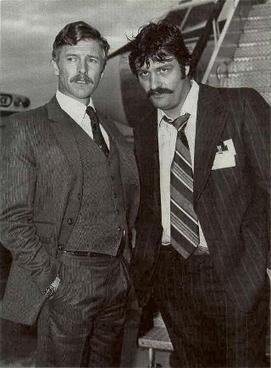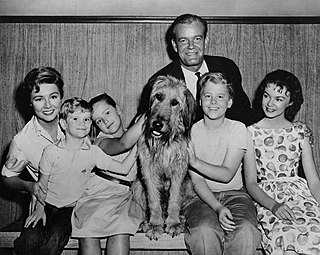Related Research Articles

Dame Olivia Newton-John was a British and Australian singer and actress. She was a four-time Grammy Award winner whose music career included fifteen top-ten singles, including five number-one singles on the Billboard Hot 100 and two number-one albums on the Billboard 200: If You Love Me, Let Me Know (1974) and Have You Never Been Mellow (1975). Eleven of her singles and fourteen of her albums have been certified Gold by the Recording Industry Association of America (RIAA).

John Peter Farnham AO is a British-born Australian singer. Farnham was a teen pop idol from 1967 until 1979, billed until then as Johnny Farnham. He has since forged a career as an adult contemporary singer. His career has mostly been as a solo artist, although he replaced Glenn Shorrock as lead singer of Little River Band from 1982 to 1985.
The 38th Annual TV Week Logie Awards was held on Sunday, April 21, 1996, at the Melbourne Park Function Centre in Melbourne, and broadcast on the Nine Network. The ceremony was hosted by Daryl Somers, and guests included Gloria Reuben and Holly Hunter.
Mac Diarmada, also spelled Mac Diarmata, is an Irish surname, and the surname of the ruling dynasty of Moylurg, a kingdom that existed in Connacht from the 10th to 16th centuries. The last ruling king was Tadhg mac Diarmata, who ruled until 1585.
Barry Hugh Crocker is an Australian Gold Logie-winning character actor, television personality, singer, and variety entertainer with a crooning vocal style.

Skyways is an Australian television soap opera drama series made by Crawford Productions for the Seven Network.
Hotel Story was an Australian television series made by Crawford Productions for the Ten Network in 1977.
Olivia Jane Hamnett was an English actress known for numerous television roles in Australia, primarily in soap operas and miniseries. including The Sullivans as Meg Fulton in 1979, in Prisoner as Dr. Kate Peterson, who was a supporting cast member in 1981–82 and in Return to Eden 1983 & 1985 as Joanna Randall.
Holiday Island is an Australian television series made by Crawford Productions for Network Ten. The show aired twice weekly from 1981 to 1982, with the first episode going to air on 17 June 1981.
The Power, The Passion is an Australian television daytime soap opera produced by the Seven Network in 1989.

Bluey is an Australian television series made by Crawford Productions for the Seven Network in 1976.
Maurice Fields was an Australian vaudeville performer, actor and stand-up comedian.
Tonight Live with Steve Vizard was a nightly Australian comedy chat show broadcast on Seven Network in Australia, featuring live musical performances.
Rush is an Australian television series produced by the Australian Broadcasting Corporation between 1974 and 1976. The first 13 episodes were produced in 1974 and filmed in black and white. In 1976, 13 more episodes were produced, in colour, in conjunction with French public broadcaster Antenne 2. Each series featured a different cast with the exception of John Waters.
The Go!! Show was an Australian popular music television series which was produced before a live audience and aired on Network Ten ATV-0, Melbourne, from August 1964 to August 1967, running one hour three nights a night.

Room for One More is an American sitcom, starring Andrew Duggan and Peggy McCay, which aired on ABC from January 27 until July 28, 1962.
Australian pop music awards are a series of inter-related national awards that gave recognition to popular musical artists and have included the Go-Set pop poll (1966–1972); TV Week King of Pop Awards (1967–1978); TV Week and Countdown Music Awards (1979–1980); the Countdown Awards (1981–1982) and Countdown Music and Video Awards (1983–1987). Early awards were based on popular voting from readers of teenage pop music newspaper Go-Set and television program guide TV Week. They were followed by responses from viewers of Countdown, a TV pop music series (1974–1987) on national broadcaster Australian Broadcasting Corporation (ABC). Some of the later award ceremonies incorporated listed nominees and peer-voted awards. From 1987 the Australian Recording Industry Association (ARIA) instituted its own peer-voted ARIA Music Awards.
The 13th Australian Recording Industry Association Music Awards was held on 12 October 1999 at the Sydney Entertainment Centre. Hosted by Paul McDermott and Bob Downe, and presenters, including Melanie C of the Spice Girls, Tina Cousins, Fiona Horne and Molly Meldrum, distributed 33 awards. The big winner for the year was Powderfinger with four awards.
Country Town is a 1971 Australian drama film directed by Peter Maxwell, produced by Fenton Rosewarne and starring Terry McDermott, Gary Gray and Lynette Curran. It was a film version of the Australian television series Bellbird, written by Barbara Vernon.
Me & Mr Thorne is a 1976 Australian television movie starring Gordon Chater and John Farnham and directed by Paul Eddey. It was a pilot for a television series from Crawford Productions that was not accepted. However, the pilot was screened as a stand-alone film.
References
- ↑ "Bobby Dazzler episode guide". Memorable TV. Archived from the original on 31 August 2007. Retrieved 28 October 2007.
- ↑ "bobby-dazzler". Oxford English Dictionary. Archived from the original on 25 December 2012. Retrieved 15 August 2010.
- ↑ "Appeal To Find Descendants Of United Legends". Newcastle United Football Club. 23 September 2014. Retrieved 22 May 2023.
- ↑ Hutchinson, Lisa (8 June 2021). "33 long lost Geordie sayings which are so funny they should be brought back". ChronicleLive.co.uk. Retrieved 22 May 2023.
'A right bobby dazzler'; Translation: Phrase used to describe someone who thinks the world of themselves; could be because of their clothes, good looks or class status.